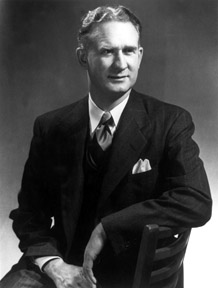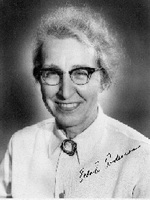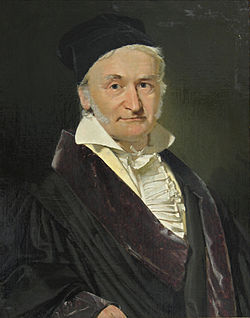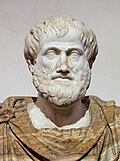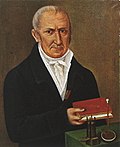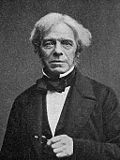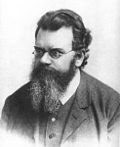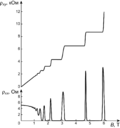
Back Portaal:Fisika Afrikaans بوابة:الفيزياء Arabic قيسارية:لفيزيك ARY بوابة:الفيزيا ARZ Portal:Fizika Azerbaijani Портал:Физика Bulgarian প্রবেশদ্বার:পদার্থবিজ্ঞান Bengali/Bangla Porched:Fizik Breton Portal:Fizika BS Portal:Física Catalan
The Physics Portal


Physics is the scientific study of matter, its fundamental constituents, its motion and behavior through space and time, and the related entities of energy and force. It is one of the most fundamental scientific disciplines. A scientist who specializes in the field of physics is called a physicist.
Physics is one of the oldest academic disciplines. Over much of the past two millennia, physics, chemistry, biology, and certain branches of mathematics were a part of natural philosophy, but during the Scientific Revolution in the 17th century, these natural sciences branched into separate research endeavors. Physics intersects with many interdisciplinary areas of research, such as biophysics and quantum chemistry, and the boundaries of physics are not rigidly defined. New ideas in physics often explain the fundamental mechanisms studied by other sciences and suggest new avenues of research in these and other academic disciplines such as mathematics and philosophy.
Advances in physics often enable new technologies. For example, advances in the understanding of electromagnetism, solid-state physics, and nuclear physics led directly to the development of technologies that have transformed modern society, such as television, computers, domestic appliances, and nuclear weapons; advances in thermodynamics led to the development of industrialization; and advances in mechanics inspired the development of calculus. (Full article...)

A supernova (pl.: supernovae or supernovas) is a powerful and luminous explosion of a star. A supernova occurs during the last evolutionary stages of a massive star, or when a white dwarf is triggered into runaway nuclear fusion. The original object, called the progenitor, either collapses to a neutron star or black hole, or is completely destroyed to form a diffuse nebula. The peak optical luminosity of a supernova can be comparable to that of an entire galaxy before fading over several weeks or months.
The last supernova directly observed in the Milky Way was Kepler's Supernova in 1604, appearing not long after Tycho's Supernova in 1572, both of which were visible to the naked eye. Observations of recent supernova remnants within the Milky Way, coupled with studies of supernovae in other galaxies, suggest that these powerful stellar explosions occur in our galaxy approximately three times per century on average. A supernova in the Milky Way would almost certainly be observable through modern astronomical telescopes. The most recent naked-eye supernova was SN 1987A, which was the explosion of a blue supergiant star in the Large Magellanic Cloud, a satellite galaxy of the Milky Way in 1987. (Full article...)
Did you know -

- ... that lasers can be used to separate two isotopes very efficiently?
- ... that your feet are slightly younger than your head, because time runs slow at a lower Gravitational Potential. This is a consequence of Gravitational Time Dilation
- ...that Max Planck created a system of measurement based solely on natural units?
Selected image -
Archimedes' screw, also called the Archimedean screw or screwpump, is a machine historically used for transferring water from a low-lying body of water into irrigation ditches. The screw pump is commonly attributed to Archimedes on the occasion of his visit to Egypt, but this tradition may reflect only that the apparatus was unknown to the Greeks before Hellenistic times and introduced in his lifetime by unknown Greek engineers. Some writers have suggested that the device may have been in use in Assyria some 350 years earlier.
-
Archimedes' screw was operated by hand and could raise water efficiently
-
An Archimedes' screw in Huseby south of Växjö Sweden
-
Archimedes' screw]
-
Roman screw used to dewater mines in Spain
-
Modern Archimedes' screws which have replaced some of the windmills used to drain the polders at Kinderdijk in the Netherlands
-
Archimedes' screw as a form of art by Tony Cragg at 's-Hertogenbosch in the Netherlands
Related portals
July anniversaries
- July 1654 – Blaise Pascal's letters to Pierre de Fermat on the "Problem of Points"
- July 1820 – Hans Christian Ørsted published pamphlet about the relation between electricity and magnetism
- July 1849 – Fizeau publishes results of speed of light experiment.
- July 1914 – AT&T tested the first working transcontinental telephone line when the president of the company spoke from one coast to the other. Months later Alexander Graham Bell repeated his famous statement over the phone in New York City which was heard by Dr. Watson in San Francisco.
- July 1957 – John Bardeen, Leon Cooper and Robert Schrieffer submit detailed research report, "Theory of Superconductivity" to the Physical Review (it was published in December).
- July 1994 – Comet Shoemaker–Levy 9 collides with Jupiter.
- 16 July 1945 – Trinity test, named by J. Robert Oppenheimer.
- 16 July 1969 – Apollo 11 launched.
- 20 July 1969 – Apollo 11 landed on the Moon.
- 23 July 1995 – Comet Hale-Bopp discovered.
- 2 July 1876 - Harriet Brooks was born; noted for research in nuclear transmutations and for discovering the Atomic recoil.
General images
Categories

Fundamentals: Concepts in physics | Constants | Physical quantities | Units of measure | Mass | Length | Time | Space | Energy | Matter | Force | Gravity | Electricity | Magnetism | Waves
Basic physics: Mechanics | Electromagnetism | Statistical mechanics | Thermodynamics | Quantum mechanics | Theory of relativity | Optics | Acoustics
Specific fields: Acoustics | Astrophysics | Atomic physics | Molecular physics | Optical physics | Computational physics | Condensed matter physics | Nuclear physics | Particle physics | Plasma physics
Tools: Detectors | Interferometry | Measurement | Radiometry | Spectroscopy | Transducers
Background: Physicists | History of physics | Philosophy of physics | Physics education | Physics journals | Physics organizations
Other: Physics in fiction | Physics lists | Physics software | Physics stubs
Physics topics
Classical physics traditionally includes the fields of mechanics, optics, electricity, magnetism, acoustics and thermodynamics. The term Modern physics is normally used for fields which rely heavily on quantum theory, including quantum mechanics, atomic physics, nuclear physics, particle physics and condensed matter physics. General and special relativity are usually considered to be part of modern physics as well.
More recognized content
Associated Wikimedia
The following Wikimedia Foundation sister projects provide more on this subject:
-
Commons
Free media repository -
Wikibooks
Free textbooks and manuals -
Wikidata
Free knowledge base -
Wikinews
Free-content news -
Wikiquote
Collection of quotations -
Wikisource
Free-content library -
Wikiversity
Free learning tools -
Wikivoyage
Free travel guide -
Wiktionary
Dictionary and thesaurus
Sources
Portals on Wikipedia
© MMXXIII Rich X Search. We shall prevail. All rights reserved. Rich X Search


![Archimedes' screw]](http://upload.wikimedia.org/wikipedia/commons/thumb/8/82/Archimedes_screw.JPG/330px-Archimedes_screw.JPG)





